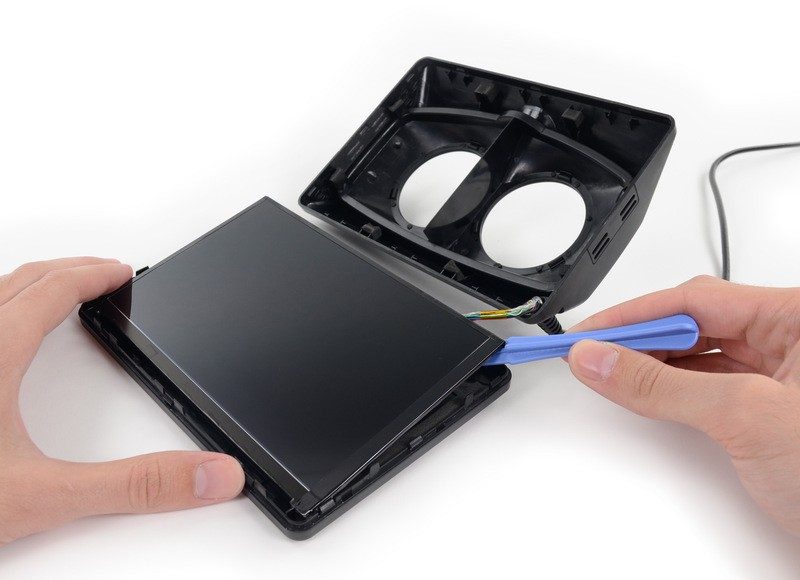Earlier this week, the Oculus Rift 1080p prototype was shown at E3. Oculus says that they can’t reveal the name of the panel manufacturer, but we think we may have tracked it down to a 5.5-inch LG display.
Hat tip to our pal Kevin Williams of the DNA Association who tracked down what could very well be the Oculus Rift 1080p prototype display.
We’re looking at a 5.5-inch 1080p display from LG. From photos of the unit, we can clearly see that the Oculus Rift 1080p prototype uses a smaller display than the current developer kit (Dk1), which uses a 7-inch screen. Here are the specs of the display in question (data from Panelook.com):
- Brand: LG Display

The current Oculus Rift developer kit (DK1) 7-inch display. Photo credit – David Hodson | iFixit (Creative Commons BY-NC-SA) - Model: LG550WF1-SD01
- Type: LTPS TFT-LCD
- Size: 5.5 inch
- Resolution: 1920×1080
- Weight: 20.23g
- Display Mode: IPS, Normally Black, Transmissive
- Brightness: 450 cd/m²
- Contrast Ratio: 1000:1
- Display Colors: 16.7M (8-bit)
- Response Time: 17/18ms (Tr/Td)
- Viewing Angle: 80/80/80/80 (L/R/U/D)
- Frequency: 60Hz
- Lamp Type: WLED
- Signal Interface: MIPI (4 data lanes)
- Input Voltage: 5.0V
- Surface: Antireflection
So what makes me think that this is the one? Aside from the resolution and size, the 60Hz frequency gives us a clue.
Engadget’s hands-on with the Oculus Rift 1080p prototype notes that, “After looking around a snowy mountain stronghold inhabited by a fire lord in low res, we switched to the exact same demo running at 60 fps on the HD prototype device…” (my emphasis).
To me, it doesn’t sound like the author of that piece just instinctively knew that the demo was running at 60 FPS. Rather, it was probably a talking point from Oculus during the demo. This coincides nicely with the panel having a 60Hz frequency.
We also know that the colors have been improved, which may be from the new display using IPS — which is indeed a feature of the LG panel.
Furthermore, Oculus’ VP of Product, Nate Mitchell, confirms that the panel is LCD in an interview with Tested.com, another match for the LG panel (the potential alternative being an OLED display).
And while I’d love to say that you could pop this display into your DK1, Mitchell confirms in the same interview that Oculus is using a custom display driver; even if you could get your hands on the display, you wouldn’t be able to use it!








